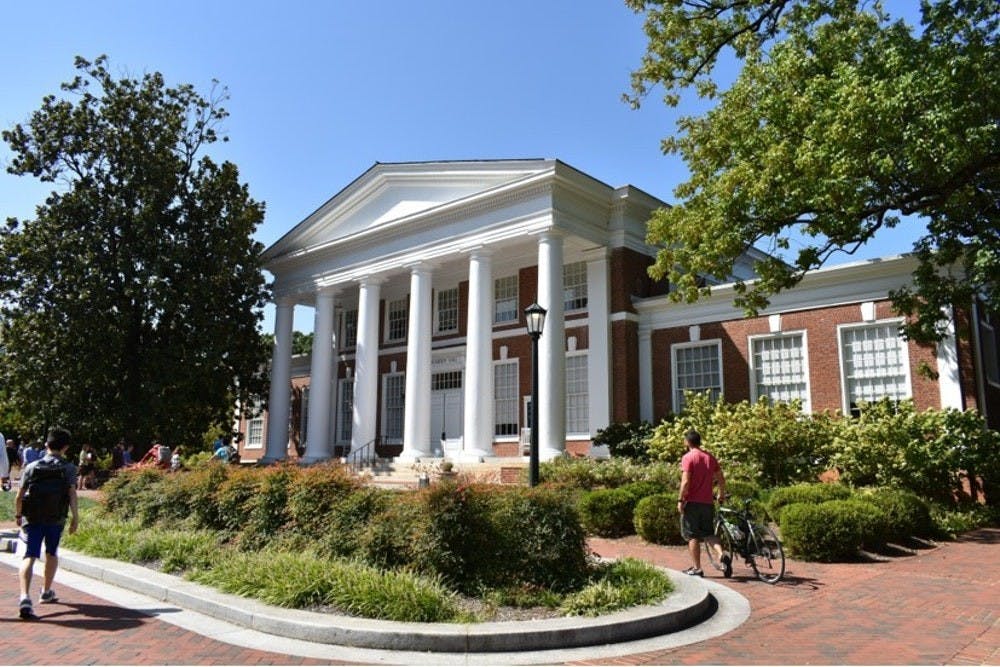Fifty individuals were recently accused of securing spots for their children in elite colleges using alarming methods. According to the charges, the accused collectively paid over $25 million to fabricate standardized test scores, bribe admission officials and fake extracurricular activities for their children. In response, there was an outcry against the apparent ease with which wealthy individuals could buy coveted spots in prestigious universities.
But we shouldn’t be so shocked. This case is merely an extreme example of the many inequalities that already exist in a college admissions process that favors the rich and powerful. Wealth paves students’ paths into elite colleges — including our University — in commonplace methods that draw much less attention. The University can take several steps to contribute to a levelling of this starkly unequal playing field.
Wealth creates this unequal playing field in college admissions in several ways. First, and most visibly, the ultra-rich can sway application decisions in return for large donations to schools. In a famous example, Jared Kushner’s father pledged a $2.5 million donation to Harvard when he was still in high school, and the next year, Kushner was admitted despite being a “less than stellar student.” Such a quid pro quo is still disturbingly common in today’s college application process.
In less obvious ways, however, the college admissions process is heavily biased towards those with financial means. In the college coaching industry, consultants can charge thousands of dollars to guide students’ applications to completion. As Rainesford Stauffer notes, fleets of essay writers can be deployed to “edit [students’] writing and, in some cases, write for them.” An industry of standardized test tutoring worth over $840 million exists where parents can fork over $200 an hour to private tutors to boost their children’s standardized testing scores.
This complex web of advantages might be hard to combat, but the University can take steps to acknowledge the stark imbalances in the college admissions process. First of all, as Senior Opinion Columnist Katherine Smith has previously called for, the University should end its reliance on legacy admissions. Richard V. Reeves, senior fellow of Economic Studies at the Brookings Institute, has noted how “legacy preferences hugely favor the wealthy” by drawing from previous pools of wealth. Considering last year legacies were admitted to U.Va. at twice the rate of non-legacies — especially from a legacy pool at a University that did not integrate until the late ‘60s — this serves as a type of “affirmative action for whites.”
Second, the University should pledge that connections and wealth will not factor into its admissions decisions. Faith in the University’s ability to fairly gauge the qualifications of applications was shaken after a “head’s up list” for applicants connected to wealthy donors was revealed in 2017. Such shadowy privileges given to wealthy students cannot continue. Instead, the University should continue efforts to achieve higher rates of racial and socioeconomic diversity in our student body.
Third, the University’s admission process should transition into a test-optional system, following suit of other prominent universities such as the University of Chicago. As Steve Syverson, assistant vice chancellor for enrollment at the University of Washington Bothell, has noted, the “strongest predictor of a student’s score” is the “affluence of parents and education of parents.” The philosophical underpinnings of standardized testing — judging applicants against one unbiased standard — has collapsed under the shadow industry of coaching and cheating that tip the scales towards those who can most afford it. Thus a test-optional method would increase accessibility for low-income students who don’t have access to the preparation materials owned by wealthier students, therefore making the admissions process more equitable.
Everyone agrees that overt bribery to favor wealthy children in college admissions is deplorable, but the United States — and our University — hasn’t adequately discussed how more routine features of the admissions process accomplishes much of the same effect. As Nikhil Goyal, author of “Schools on Trial,” put it, “If you had to design a system that would give rich, white kids the best odds of getting into prestigious colleges and universities, look no further than the current system.” The University should start looking at more avenues — ending legacy admissions, dissolving secret lists of connected applicants and moving towards a test-optional application process — to dismantle such inequalities.
Jack Wilkins is an Opinion Columnist for The Cavalier Daily. He can be reached at opinion@cavalierdaily.com.







